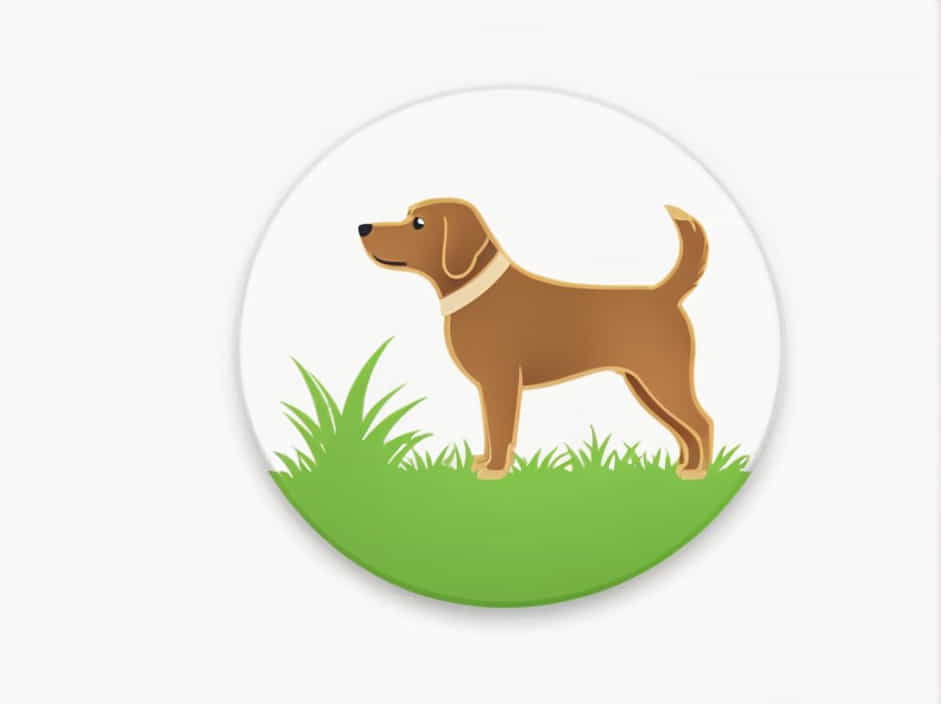Many dog owners have witnessed their pets suddenly frantically eating grass, sometimes in a way that seems obsessive. While this behavior may seem unusual, it’s actually quite common. But what does it mean? Is it a sign of illness, boredom, or instinct? This topic explores the reasons behind frantic grass eating and when you should be concerned.
Is It Normal for Dogs to Eat Grass?
Yes, it is! Dogs are known to eat grass occasionally, and for most, it’s a harmless and natural behavior. Even wild canines, such as wolves and foxes, have been observed eating plant material.
However, if your dog suddenly starts eating grass frantically or excessively, it could indicate an underlying issue that needs attention.
Common Reasons Dogs Frantically Eat Grass
1. Upset Stomach or Nausea
One of the most well-known reasons dogs eat grass is to induce vomiting. If your dog has an upset stomach, they may instinctively eat grass to help them expel whatever is causing discomfort.
However, not all dogs vomit after eating grass. Some may chew and swallow grass without showing any signs of sickness.
2. Nutritional Deficiency
Dogs may eat grass if they’re lacking certain nutrients or fiber in their diet. While most commercial dog foods are formulated to be balanced, some dogs may still crave additional roughage to aid digestion.
If your dog is frequently eating grass, consider evaluating their diet to ensure they are getting enough fiber, vitamins, and minerals.
3. Boredom or Anxiety
Just like some dogs chew on furniture or dig holes when bored, others may turn to frantic grass eating as a form of stimulation. This is especially common in dogs that don’t get enough exercise, mental enrichment, or social interaction.
Dogs with anxiety may also eat grass as a self-soothing behavior, similar to how some humans bite their nails when stressed.
4. Instinctual Behavior
Even though dogs are primarily carnivores, they still have omnivorous tendencies. Eating grass may be a leftover instinct from their ancestors, who consumed plant material as part of a varied diet.
Some researchers believe that grass consumption helps cleanse the digestive system and may act as a natural dewormer.
5. They Simply Like the Taste
Not every dog eats grass for a deeper reason—some just enjoy the taste and texture! Fresh, dewy grass may be particularly appealing, especially in the morning or after rainfall.
If your dog is healthy, active, and well-fed, but still occasionally nibbles on grass, it may just be a harmless preference.
When Should You Be Concerned?
While eating grass is generally not dangerous, frantic or excessive grass eating can sometimes be a red flag. Look out for the following warning signs:
🚩 Frequent vomiting – If your dog vomits every time they eat grass, there could be an underlying gastrointestinal issue.
🚩 Lethargy or behavioral changes – A sudden increase in grass eating, paired with low energy, could indicate illness.
🚩 Diarrhea or other digestive problems – If grass consumption is accompanied by diarrhea, constipation, or bloating, consult a vet.
🚩 Eating toxic plants – Some plants found in lawns or gardens can be poisonous to dogs. Ensure your yard is free from harmful chemicals or toxic plants.
How to Stop Frantic Grass Eating
If your dog’s grass-eating habit is becoming a problem, here are some ways to manage and reduce the behavior:
✅ Ensure a balanced diet – Make sure your dog is getting enough fiber and nutrients in their food.
✅ Provide mental and physical stimulation – Increase playtime, walks, and interactive toys to reduce boredom.
✅ Offer safe alternatives – If your dog craves roughage, try offering dog-safe veggies like carrots, green beans, or lettuce.
✅ Monitor their environment – If your dog eats grass due to stress, identify and address the triggers causing anxiety.
While occasional grass eating is normal, frantic or excessive consumption may indicate digestive discomfort, anxiety, or dietary imbalances. Observing your dog’s behavior and ensuring they have a nutritionally complete diet and a stimulating environment can help reduce this habit. If you’re ever in doubt, consulting a veterinarian is always the best course of action.
